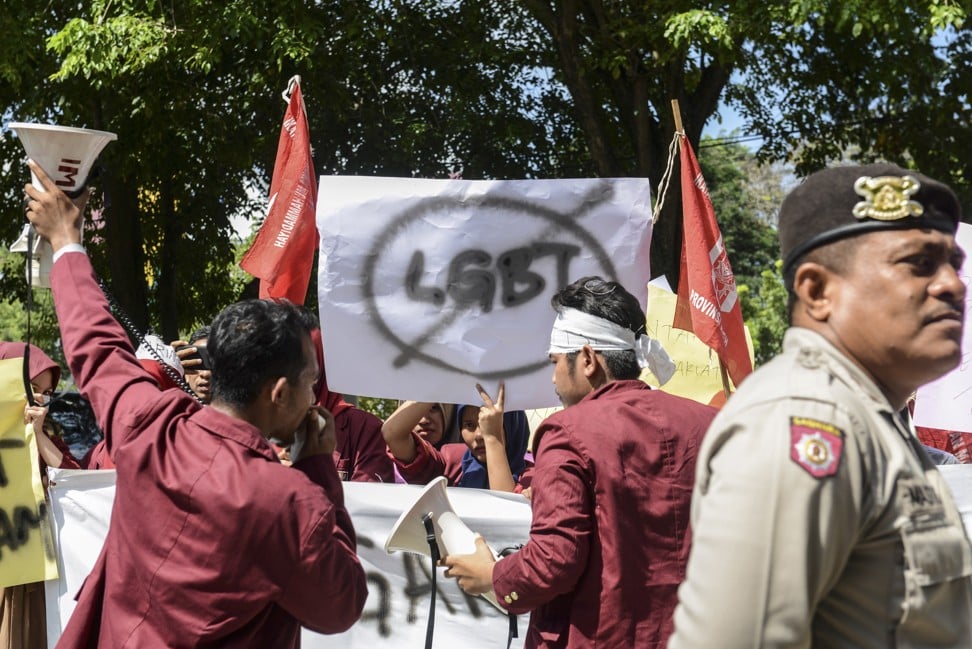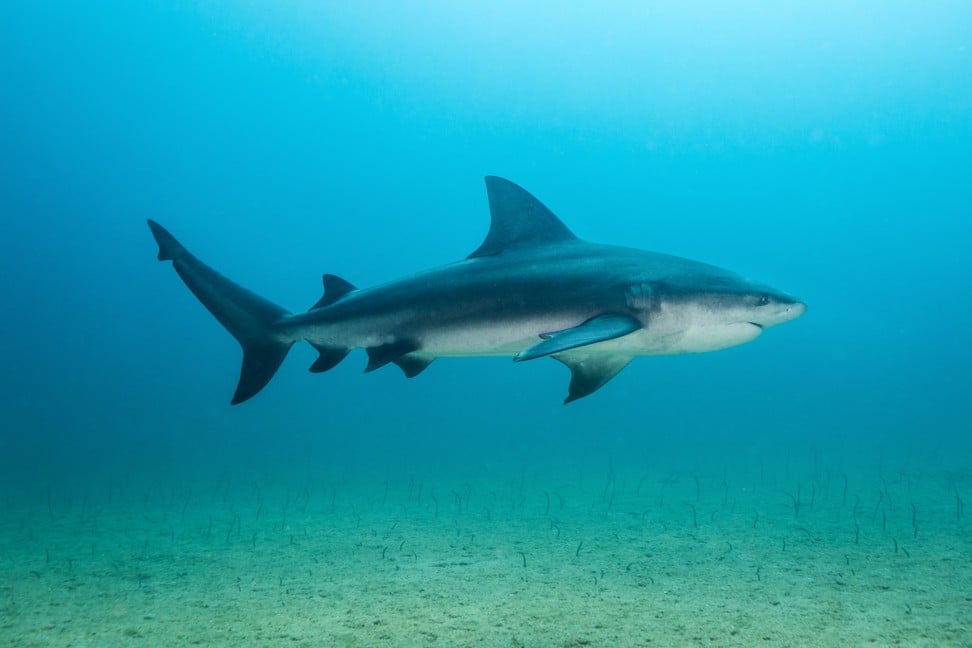
In Bali, LGBT businesses targeted for catering to the gay community and ‘tainting tourism’
- Indonesia’s Island of the Gods has long been touted as one of Asia’s top gay destinations
- But even Bali is not immune from the nation’s growing anti-LGBT sentiment
LGBT visitors to Bali could be forgiven for thinking that the Indonesian island is a haven of tolerance in an increasingly conservative Muslim-majority nation. “Beautiful landscapes, sandy beaches and [a] friendly gay scene make Bali one of Asia’s most popular gay destinations,” states online travel and lifestyle guide Travel Gay.
However, on January 10, news website Coconuts reported that a villa in the resort town of Seminyak was at the centre of investigations by the Public Order Agency after “allegations surfaced” that it catered to the gay community. “Authorities on the island have since expressed their disapproval based on their belief that homosexuality is against cultural norms in Bali,” stated the article.
The Angelo Bali Gay Guesthouse had an “excellent” rating on TripAdvisor until the listing was recently removed and is described on the Travel Gay website as being an “exclusively gay, clothing-optional resort” located “one block from the gay bars”. It was brought to the authorities’ attention when its Facebook page, which is currently inaccessible, was featured by local news outlets.
“We received a report, including the one on social media about this villa, accommodation or a guest house marketing themselves specifically for the gay community,” I Gusti Agung Ketut Suryanegara, head of the Public Order Agency in Badung regency, told Indonesian-language news portal Tribun. “We will follow up on this issue.”

But what exactly is the issue? Well, according to I Made Badra, who leads Badung’s Cultural Agency, the Angelo’s very existence is “tainting Bali’s tourism”, a view that highlights the prejudices faced by LGBT individuals in Indonesia even though homosexuality is not a crime (apart from the province of Aceh, which enforces strict Islamic law.)
On January 13, British online newspaper PinkNews reported that another three villas catering to gay guests in Seminyak and Kerobokan were being investigated. Officer AA Oka Ambara Dewi told PinkNews that the Public Order Agency would examine the permits of each of the properties and “if there is proof that it [caters to the gay community] then we will temporarily seal the property”.
The news comes amid increasing anti-LGBT sentiment in Indonesia. Last September, a penal code criminalising extramarital sex, which would have effectively outlawed same-sex relations in a country where gay marriage is not recognised, was almost passed. The vote was delayed by President Joko Widodo at the eleventh hour, but it sparked student-led protests in major cities that resulted in several fatalities. Critics were quick to point out that such a draconian law could do serious damage to Indonesia’s tourism industry.
Closing Bali’s LGBT-friendly businesses could have a similar, if smaller, impact on an important part of the island’s economy. Gay people earn more and travel more, and part with more money while doing so, than their heterosexual counterparts; according to figures released at the travel industry event World Travel Market, held in London in 2018, LGBT travellers spend US$218 billion annually. As a popular Asian gay destination, attitudes of intolerance and homophobia threaten Bali’s ability to attract the powerful pink dollar.
Already, prominent LGBT figures have expressed their dismay that gay businesses are being targeted. Bobby Berk, Queer Eye ’s interior designer, who happened to be holidaying on the Island of the Gods when he heard of the Angelo’s closure, tweeted to his 430,000 followers that he wouldn’t be “recommending or coming back if this is now how the government here is going to act”.
On January 14, Human Rights Watch published its World Report 2020, noting that “Indonesian authorities continued their assault on the basic rights of LGBT people”, and that “LGBT people faced increasing violence, intimidation, and abusive raids”. Despite its tolerant reputation, it appears that Bali’s authorities are over the rainbow and not immune to rising anti-LGBT sentiment. Perhaps, at least, until they see what it costs them.
Vietnam’s Vingroup cancels plans for a new airline

Vietnam’s aviation market is booming, with 2019 welcoming budget airline Bamboo Airways to the skies and another three home-based carriers expected to take off this year. At least, that was the plan until the country’s largest conglomerate, Vingroup, announced it would no longer be launching Vinpearl Air, which was slated to be in operation by July.
Aviation website Simple Flying reported that the company was worried the market was becoming too saturated. “Vingroup’s strong investment in aviation can lead to oversupply, causing waste,” Nguyen Viet Quang, deputy chairman and chief executive of Vingroup, told English-language daily Vietnam News.
Vietravel Airlines and KiteAir are also in the works, their operators hoping to cash in on rapidly increasing passenger numbers, although there are concerns that existing airport infrastructure will limit market growth.
Still, with any luck, there will be one beneficiary to there being one less emission-emitting airline in the world, and that’ll be the environment.
Tourist bitten by bull shark in Thailand

Tourists flock to Thailand’s crystalline waters for sun, swimming, snorkelling and scuba diving, often with the intention of coming face to face with the nation’s diverse marine life. However, a 75-year-old German tourist enjoying the ocean off Phang Nga province got a little more than he bargained for on January 12, when a shark, thought to be a small bull shark, took a bite out of him. Online news portal The Thaiger reported that the tourist was treated in a Phuket hospital.
Speaking to the website Thai PBS News, the vice dean of the Faculty of Fisheries at Kasetsart University, Dr Thon Thamrongnawasawat, said that shark attacks in Thailand were rare.
“Each year only five to 10 people die in shark attacks worldwide, but about 70 million sharks are killed by humans,” he said, a statistic to consider as we approach the Lunar New Year and shark fin soup appears prominently on banquet menus.

